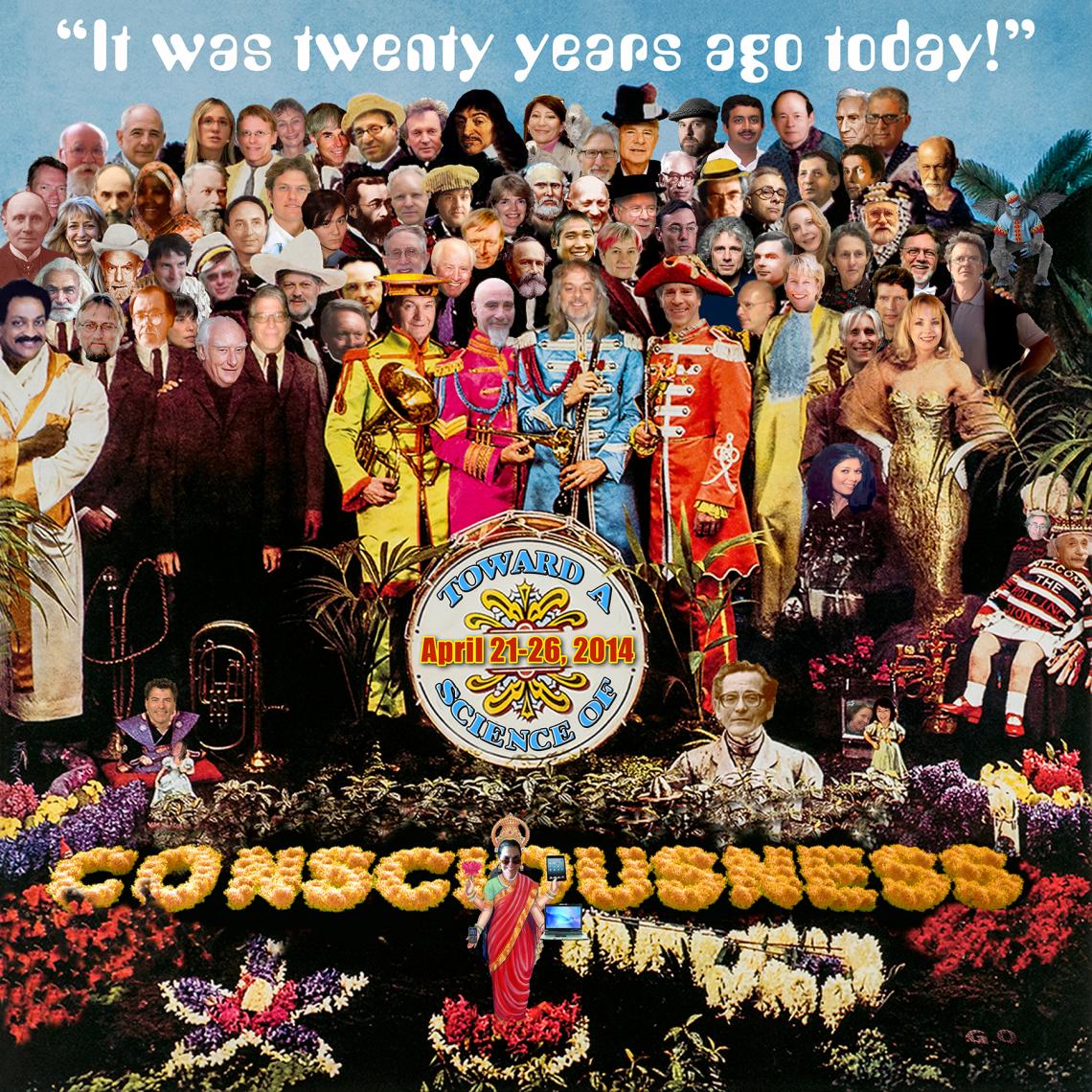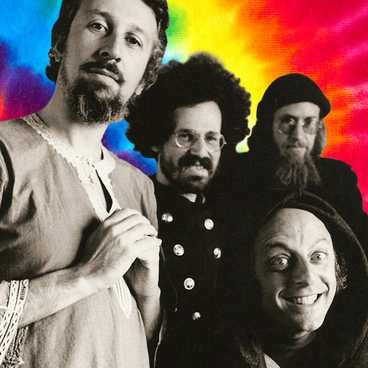-
 Pierre-Normand
2.9kYes he does use psychical, but I'm paraphrasing to put it into the context of the discussion here.
Pierre-Normand
2.9kYes he does use psychical, but I'm paraphrasing to put it into the context of the discussion here.
What is psychical? If it's part of the physical realm, then it's some new fundamental physics that we don't know about. If it's not part of the physical realm, then it's metaphysical and we're back to dualism. — Malcolm Lett
Oh I see! I had indeed missed the broader context. I'll try to pay closer attention to it in the future. Thanks for clarifying! -
 Matripsa
5The argument against the conceivability of zombies could be that there is no logical way to know whether you are conceiving of zombies without qualia, or simply conceiving of replicants. Since qualia is inherently subjective in nature, there is no way for us to conceive of "what it would be like" to not have a "what it would be like", as that would be akin to conceiving of nothingness, which we (or at least I) cannot truly do. So in the end, you could say there's no real way to differentiate between zombies without qualia and simple replicants that just act like zombies. The subjective nature of conscious experience makes it impossible for us to conclusively conceive of the scenario of "zombies" as a coherent metaphysical possibility. We're really just imagining duplicates, not true qualia-less beings.
Matripsa
5The argument against the conceivability of zombies could be that there is no logical way to know whether you are conceiving of zombies without qualia, or simply conceiving of replicants. Since qualia is inherently subjective in nature, there is no way for us to conceive of "what it would be like" to not have a "what it would be like", as that would be akin to conceiving of nothingness, which we (or at least I) cannot truly do. So in the end, you could say there's no real way to differentiate between zombies without qualia and simple replicants that just act like zombies. The subjective nature of conscious experience makes it impossible for us to conclusively conceive of the scenario of "zombies" as a coherent metaphysical possibility. We're really just imagining duplicates, not true qualia-less beings. -
 Patterner
2k
Patterner
2k
Because mind is of the nature it is, I don't think the same limitation applies that does to eye and hand. A minds thinks, examines, theorizes. No reason it can't do those things about itself. No reason it can't be the object of its own examination.My interpretation of the issue is this. The fundamental puzzle of mind, is that it is never truly an object of cognition, in the way that physical objects are. Again, no metaphysical posit is required to prove that. Something nearer a perspectival shift is required: the reason the mind is not objectively graspable, is that it is the subject of experience, that to which or to whom experience occurs, that which cognises, sees and judges. But as Indian philosophy puts it, the eye can see another, but not itself; the hand can grasp another, but not itself. Again, no metaphysical posit required, but it does throw into relief the elusive nature of the subject and its intractibility to the objective sciences. — Wayfarer
Granted, there will be arguments about what thinking is "correct" or "legitimate" when going about this. but such arguments are not limited to the study of the mind. As in all fields, different groups of people will go about it in different ways. Some will contribute more than others to the growth of knowledge. -
 bert1
2.2kSame with us, no? There also is "no empirical way of knowing" (yet / ever) whether any person is "conscious or faking". Which seems more reasonable, or likely, to you, Wayfarer (or anyone): (A) every human is a zombie with a(n involuntary) 'theory of mind'? or (B) every entity is a 'conscious' monad necessarily inaccessible / inexplicable to one another's 'subjectivity'? or (C) mind is a 'mystery' too intractable for science, even in principle, to explain? or (D) mind is a near-intractably complex phenomenon that science (or AGI) has yet to explain? :chin: — 180 Proof
bert1
2.2kSame with us, no? There also is "no empirical way of knowing" (yet / ever) whether any person is "conscious or faking". Which seems more reasonable, or likely, to you, Wayfarer (or anyone): (A) every human is a zombie with a(n involuntary) 'theory of mind'? or (B) every entity is a 'conscious' monad necessarily inaccessible / inexplicable to one another's 'subjectivity'? or (C) mind is a 'mystery' too intractable for science, even in principle, to explain? or (D) mind is a near-intractably complex phenomenon that science (or AGI) has yet to explain? :chin: — 180 Proof
What a rotten lot of choices! B is closest to the truth I reckon, but we can know other minds by inference, and identities change constantly. -
 180 Proof
16.4k
180 Proof
16.4k
Well, I prefer (A) speculatively but (D) empirically; however, I find both (B) & (C) are incoherent (e.g. compositional fallacy & appeal to ignorance, respectively).Which seems more reasonable, or likely, to you, @Wayfarer (or anyone): (A) every human is a zombie with a(n involuntary) 'theory of mind'? or (B) every entity is a 'conscious' monad necessarily inaccessible / inexplicable to one another's 'subjectivity'? or (C) mind is a 'mystery' too intractable for science, even in principle, to explain? or (D) mind is a near-intractably complex phenomenon that science (or AGI) has yet to explain?
— 180 Proof
B is closest to the truth I reckon, but we can know other minds by inference ... — bert1 -
 Tom Storm
10.9kInteresting. Would you mind saying a little more about A? D resonates with me but I am not well read on this subject.
Tom Storm
10.9kInteresting. Would you mind saying a little more about A? D resonates with me but I am not well read on this subject.
Does A equate with Metzinger's 'self-model theory of subjectivity'? -
 Wayfarer
26.1kmind is a 'mystery' too intractable for science, even in principle, to explain? — bert1
Wayfarer
26.1kmind is a 'mystery' too intractable for science, even in principle, to explain? — bert1
(Apologies for the delay in responding, I only just noticed the question from 15 days ago.)
Science construed as dealing solely with objective phenomena. But the grounds are rapidly shifting. I'm spending a lot of time nowadays perusing various Internet speilfests and panel discussions which are challenging the over-arching physicalist/objectivist paradigm that has dominated science until now. Phenomenology, analytical idealism, post-modernism and non-dualism (to mention a few) are challenging the physicalist paradigm and conception of the nature of science.
Who remembers the poster from the 2014 Tucscon Science of Consciousness conference?

'It was twenty years ago today'. And that was ten years ago! -
 Wayfarer
26.1kThe first of the Towards a Science of Consciousness, a bi-annual spielfest held at Uni of Arizona Tucson (next one is this month!). If you zoom in on that ‘album cover’ it comprises photos of many of the main attendees, with David Chalmers in the middle. (His ‘Facing up to the problem of Consciousness’ was one of the main motivators for the conference. To his right is Stuart Hameroff who is known for the OrchOR model co-developed with Roger Penrose. I can identify a few of the others also.) But the thing which grabbed me about that, is how hippies have now become part of the mainstream, hence the salute to Sgt Pepper's. There's another great book along those lines, How the Hippies Saved Physics, David Kaiser, which features this great photo of the Fundamental Fysiks Group
Wayfarer
26.1kThe first of the Towards a Science of Consciousness, a bi-annual spielfest held at Uni of Arizona Tucson (next one is this month!). If you zoom in on that ‘album cover’ it comprises photos of many of the main attendees, with David Chalmers in the middle. (His ‘Facing up to the problem of Consciousness’ was one of the main motivators for the conference. To his right is Stuart Hameroff who is known for the OrchOR model co-developed with Roger Penrose. I can identify a few of the others also.) But the thing which grabbed me about that, is how hippies have now become part of the mainstream, hence the salute to Sgt Pepper's. There's another great book along those lines, How the Hippies Saved Physics, David Kaiser, which features this great photo of the Fundamental Fysiks Group

Standing, left to right: Jack Sarfatti, Saul-Paul Sirag, Nick Herbert;
Bottom right: Fred Alan Wolf.
Hence the mainstreaming of the counter-culture in physics and philosophy of mind.
Zombies be damned :flower:
Welcome to The Philosophy Forum!
Get involved in philosophical discussions about knowledge, truth, language, consciousness, science, politics, religion, logic and mathematics, art, history, and lots more. No ads, no clutter, and very little agreement — just fascinating conversations.
Categories
- Guest category
- Phil. Writing Challenge - June 2025
- The Lounge
- General Philosophy
- Metaphysics & Epistemology
- Philosophy of Mind
- Ethics
- Political Philosophy
- Philosophy of Art
- Logic & Philosophy of Mathematics
- Philosophy of Religion
- Philosophy of Science
- Philosophy of Language
- Interesting Stuff
- Politics and Current Affairs
- Humanities and Social Sciences
- Science and Technology
- Non-English Discussion
- German Discussion
- Spanish Discussion
- Learning Centre
- Resources
- Books and Papers
- Reading groups
- Questions
- Guest Speakers
- David Pearce
- Massimo Pigliucci
- Debates
- Debate Proposals
- Debate Discussion
- Feedback
- Article submissions
- About TPF
- Help
More Discussions
- Other sites we like
- Social media
- Terms of Service
- Sign In
- Created with PlushForums
- © 2026 The Philosophy Forum







